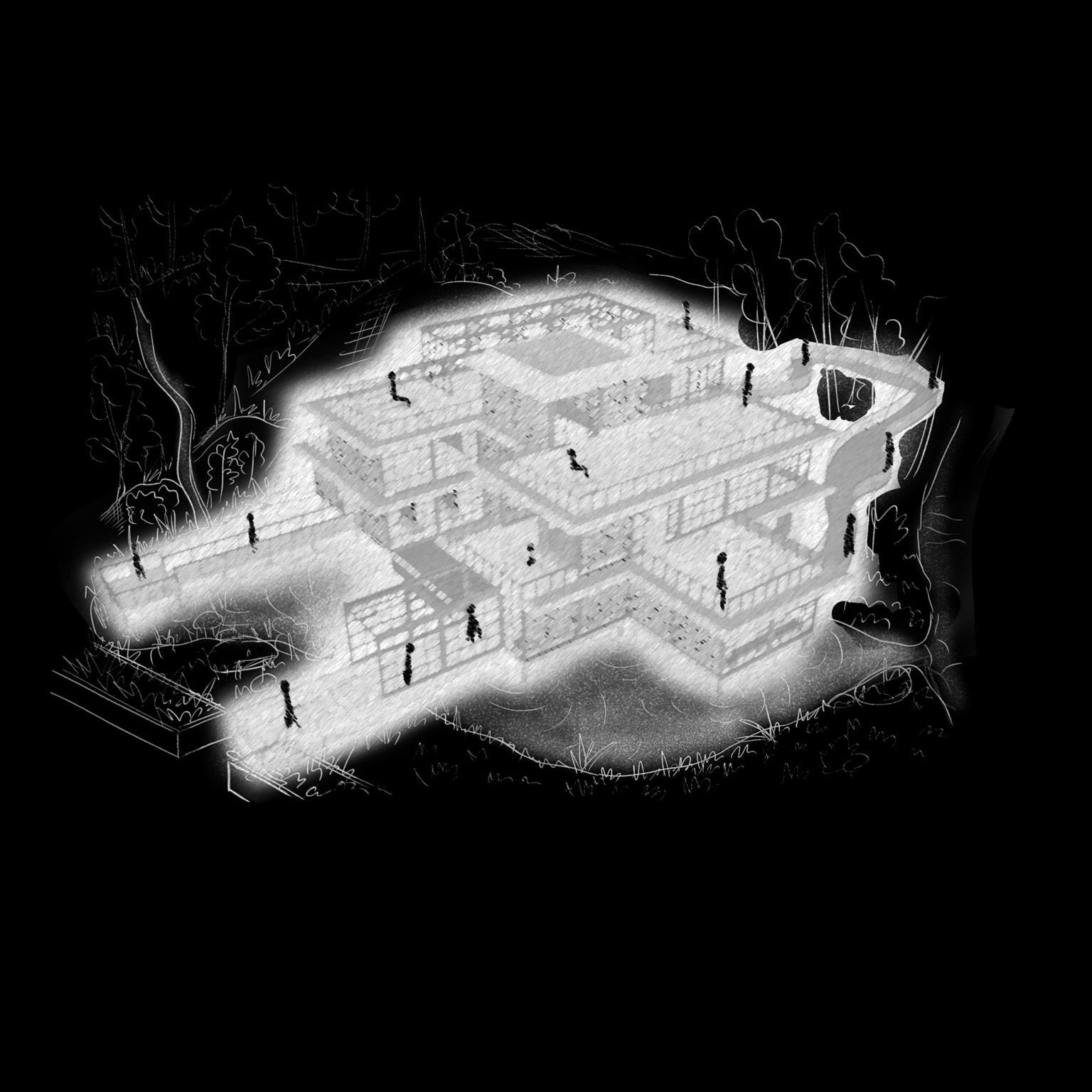






Resume ii
BSc Year 03 Semester 02 01
URBAN AGRICULTURE HUB, HOMAGAMA
BSc Year 03 Semester 01 07
FOREST RESEARCH AND AQUAPONIC SCIENCE CENTER
Research Paper overview 14
URBAN AGRICULTURE IN RESIDENTIAL BUILDINGS OF COLOMBO

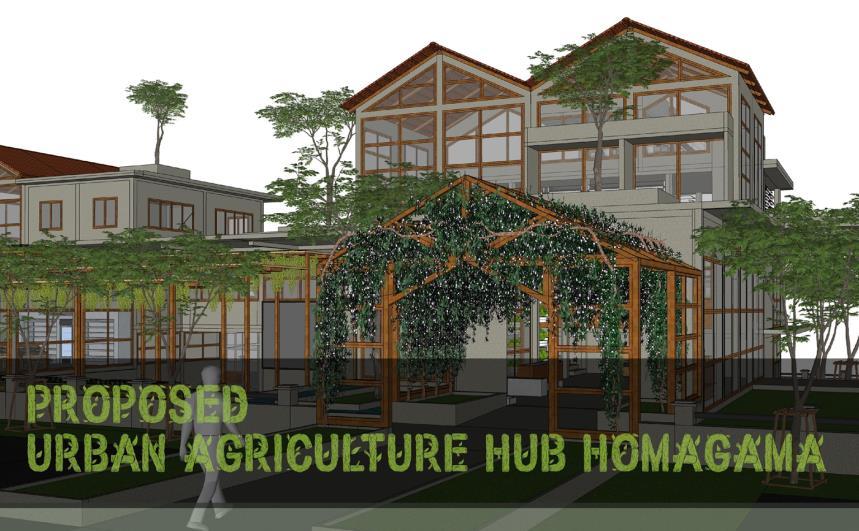
Project type mixed use Site Location Homagama Sri Lanka
Duration June 2022 – Aug 2022 Software Used Sketchup AutoCAD Lumion Photoshop
The project’s objective is to identify a major issue and do a in depth analysis and provide an architectural solution for it The research done on “Urban agriculture in Residential Buildings of Colombo” Research report reveals one of the major issues in Colombo District which is the unreliable food supply system and about the current food crisis followed by the economic crisis. Report discussed how to increase cities’ food supply resilience by promoting Urban agriculture in Residential levels.
This design project is providing an architectural solution to this issue through many levels Research, Innovation and business development hub in the future tech city of Sri Lanka will be a great opportunity to promote Urban agriculture and Generate Economically, Ecologically, socially sustainable ecosystem around it.
The design provides spaces to make awareness, conduct researchers, promote healthier lifestyle, promote healthier food habits, educate efficient UA technologies and assist agricultural entrepreneurship So as the project I’m proposing an Urban Agriculture hub that will guide Sri Lankan cities to greener and sustainable cities.
Urban agriculture will contribute to bring people together in both urban and peri urban areas. As a result, people in both urban and rural areas will gain. Urban agriculture makes use of resources that would otherwise be wasted in cities. Urban gardening delivers healthful, organic food to the neighborhood Increased local production and shorter supply chains could reduce the likelihood of food supply disruptions, enable the development of circular systems, and reduce reliance on external inputs, while diversifying sources can provide "back up" capacity and, thus, improve food systems' ability to react and adapt to shocks.
There is mounting evidence that urban agriculture can improve city resilience through a variety of methods, including but not limited to food system resilience It also has numerous social and environmental advantages.
As a result, there is a need to encourage sustainable and organic farming methods in society. Through a Urban Agriculture hub public awareness, Research & development of UA methods and Promote UA as a passive income source can be achieved.
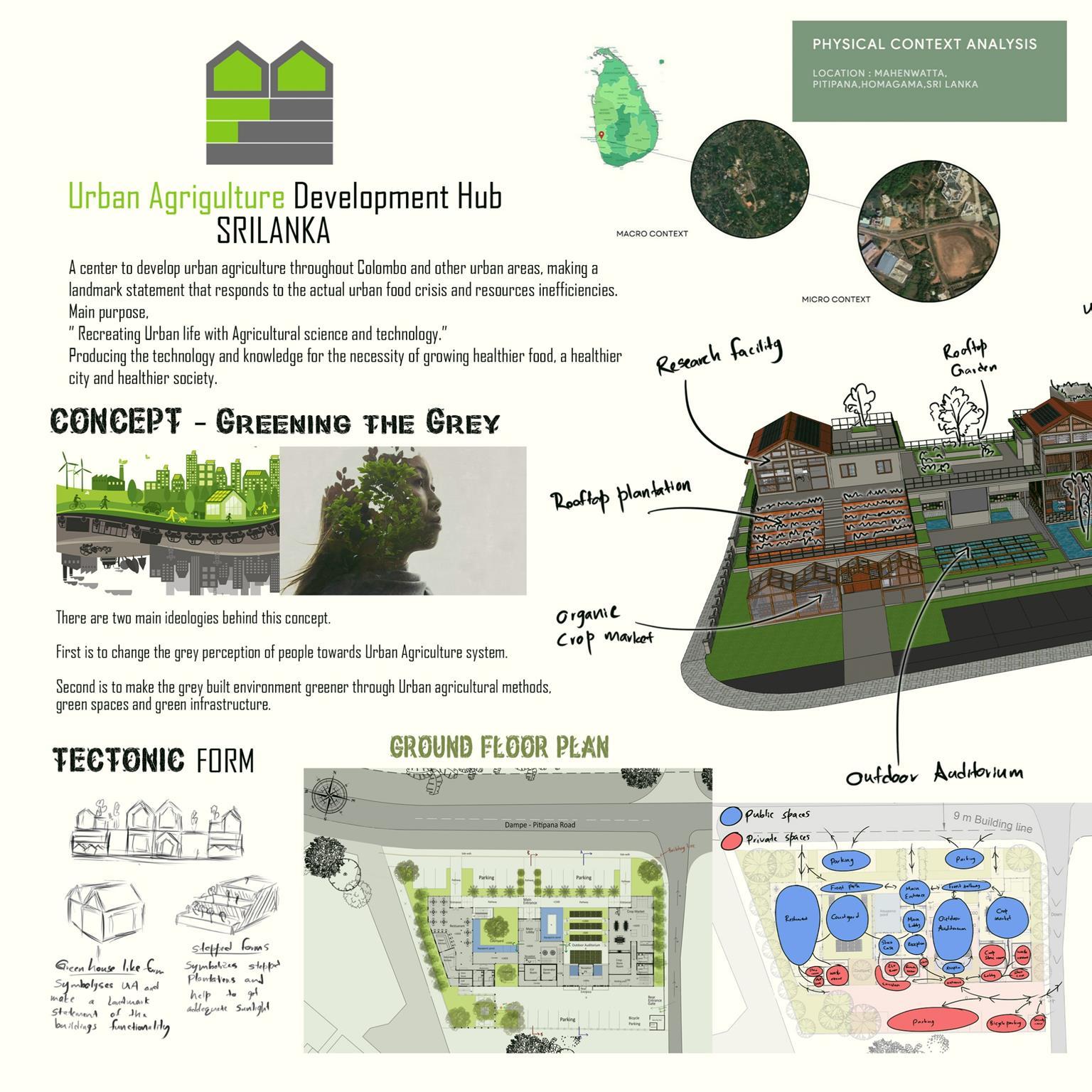
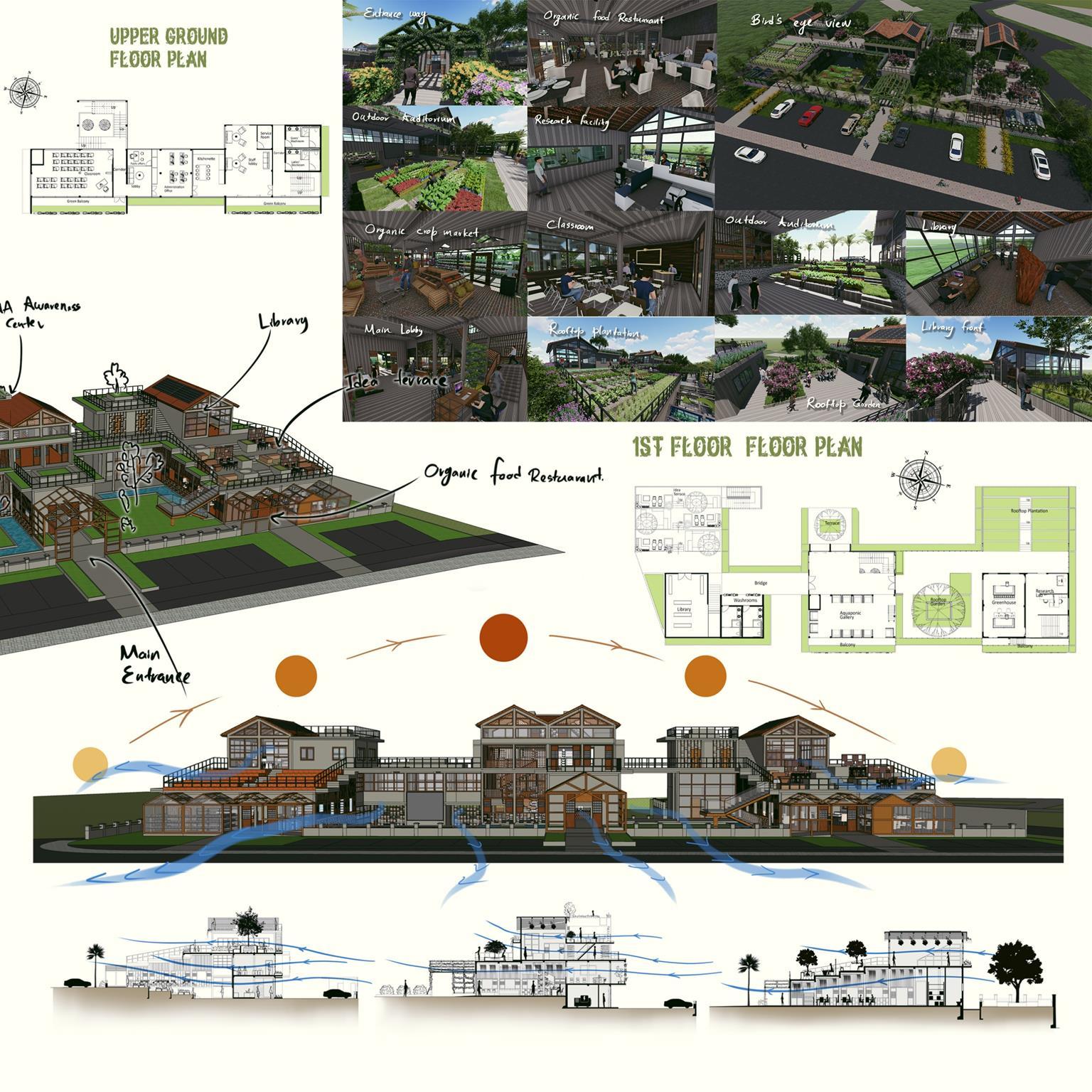
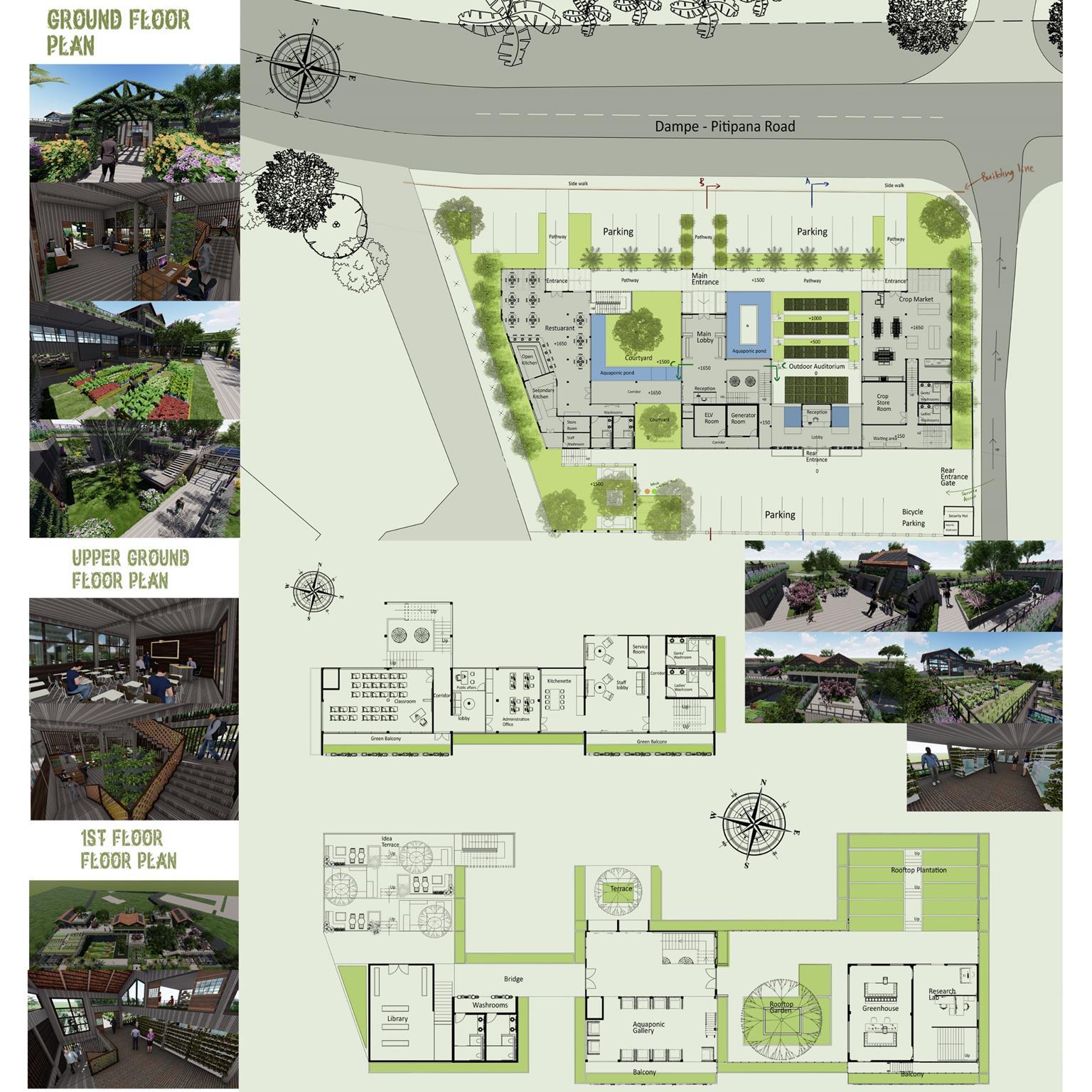
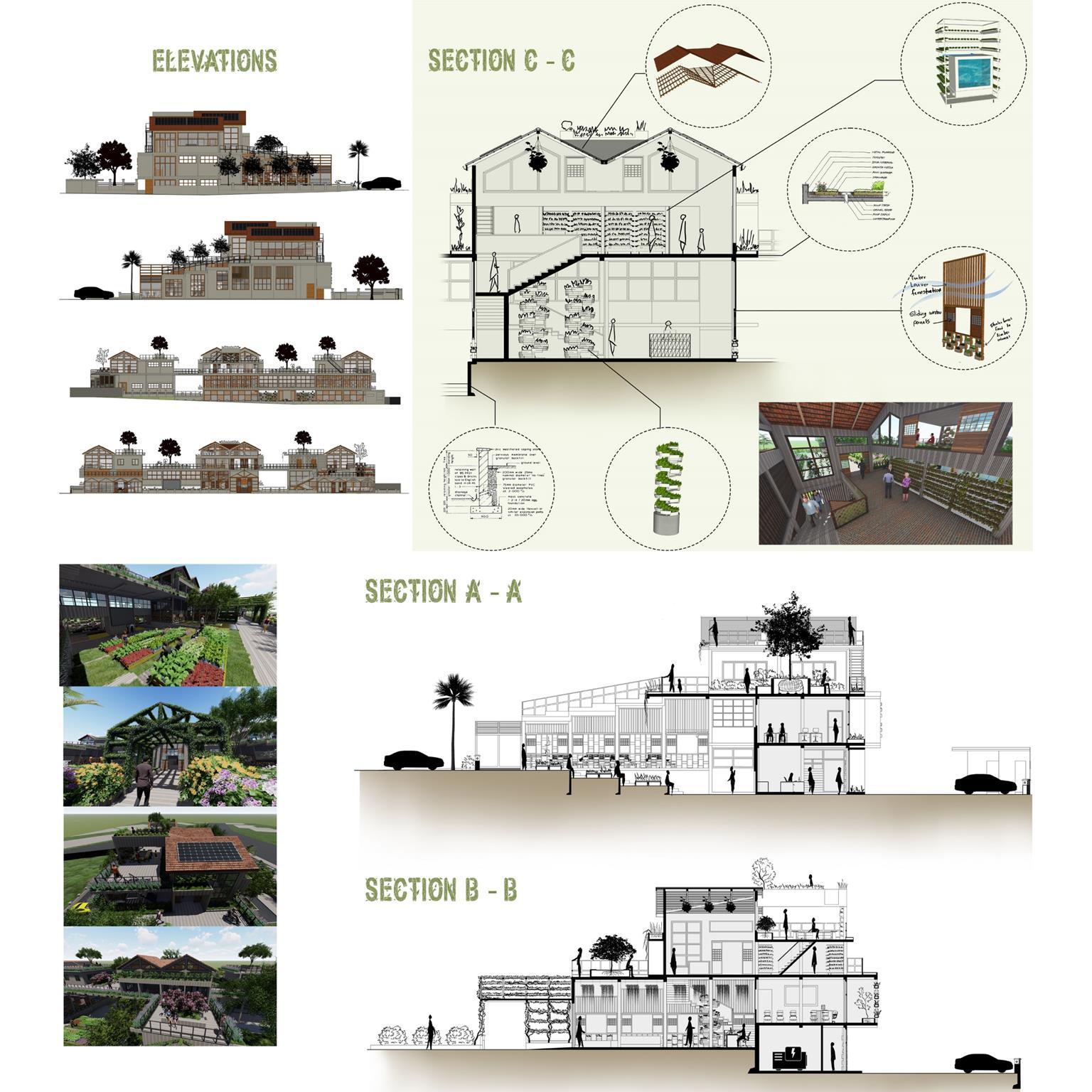
FOREST RESEARCH CENTER

Project type Artist Studio Site Location Kanneliya, Sri Lanka
Duration Jan 2022 – April 2022
Software Used Sketchup AutoCAD
Lumion Photoshop
This project mainly focuses about how to achieve a sustainable architectural design in an environmentally sensitive zone through a sensitive and minimal design approach while creating a minimal impact to the surrounding nature and uplifting the sustainability of connection between society and the forest reserve.
As a project, we were assigned to design a Rainforest Research center Our task is to come up with a sustainable and environment friendly design approach and finally completing the task by creating an environmentally sustainable design.
Proposed forest research and aquaponic science center will facilitate research conditions and aware people about the beauty and the importance of these tiny creatures It will also ensure the existence of these tiny creatures by identifying threatened species, breeding and reforesting them in a more sustainable way. It will introduce aquaponic farming to villagers to get more cultivation with the help of these tiny creatures ( with aquaponic technology ). Farmers will learn about Aquaponics, Aquaculture and how to generate more income through the center. Most importantly it will help the community to be more environment conscious and eliminate unsustainable practices
This project will be able to create a strong bond between the community and the forest reserve. With the support of community, the success of research and rehabilitating activities will be increased. As a whole, this project will Rebuild the pillars of sustainability around the Forest environment
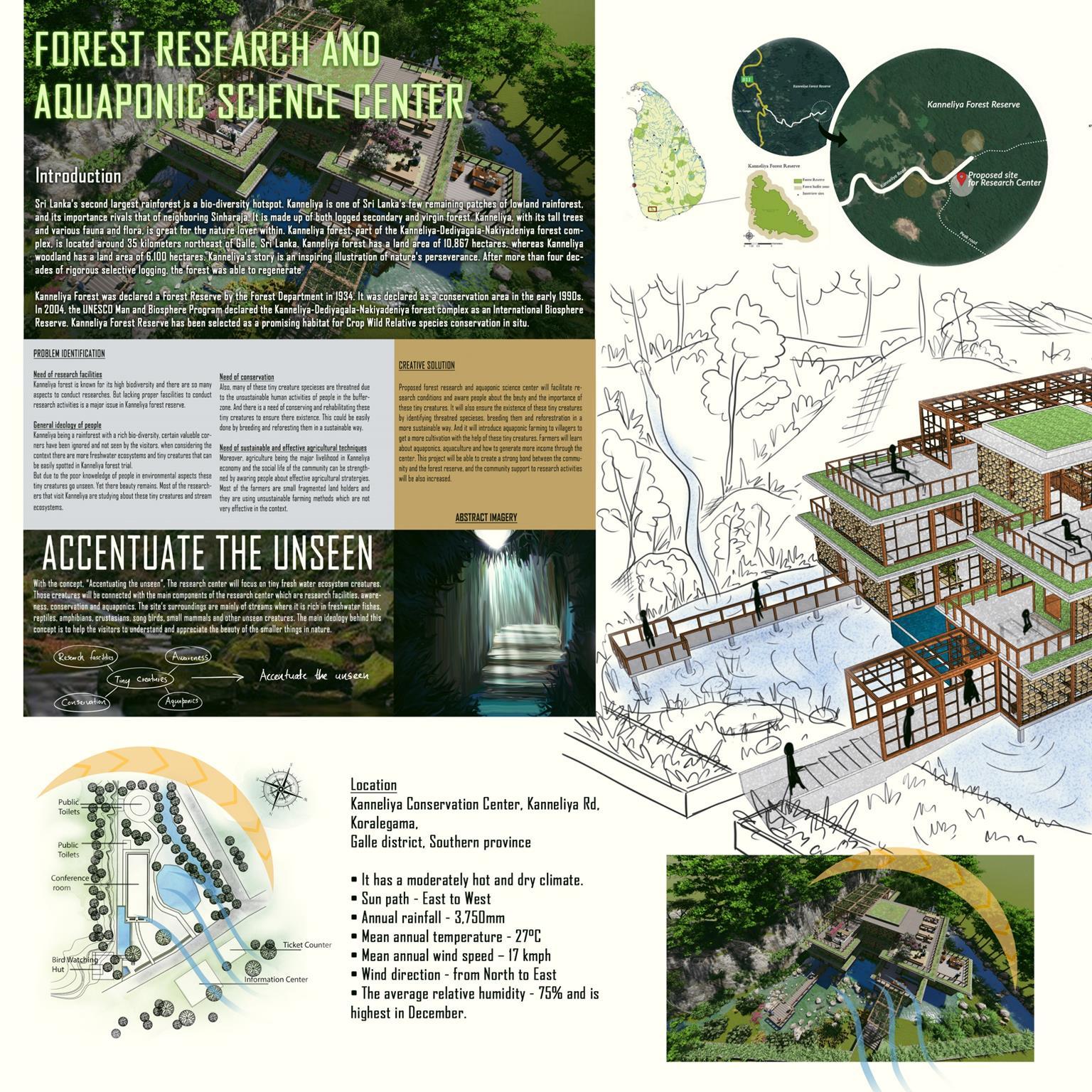


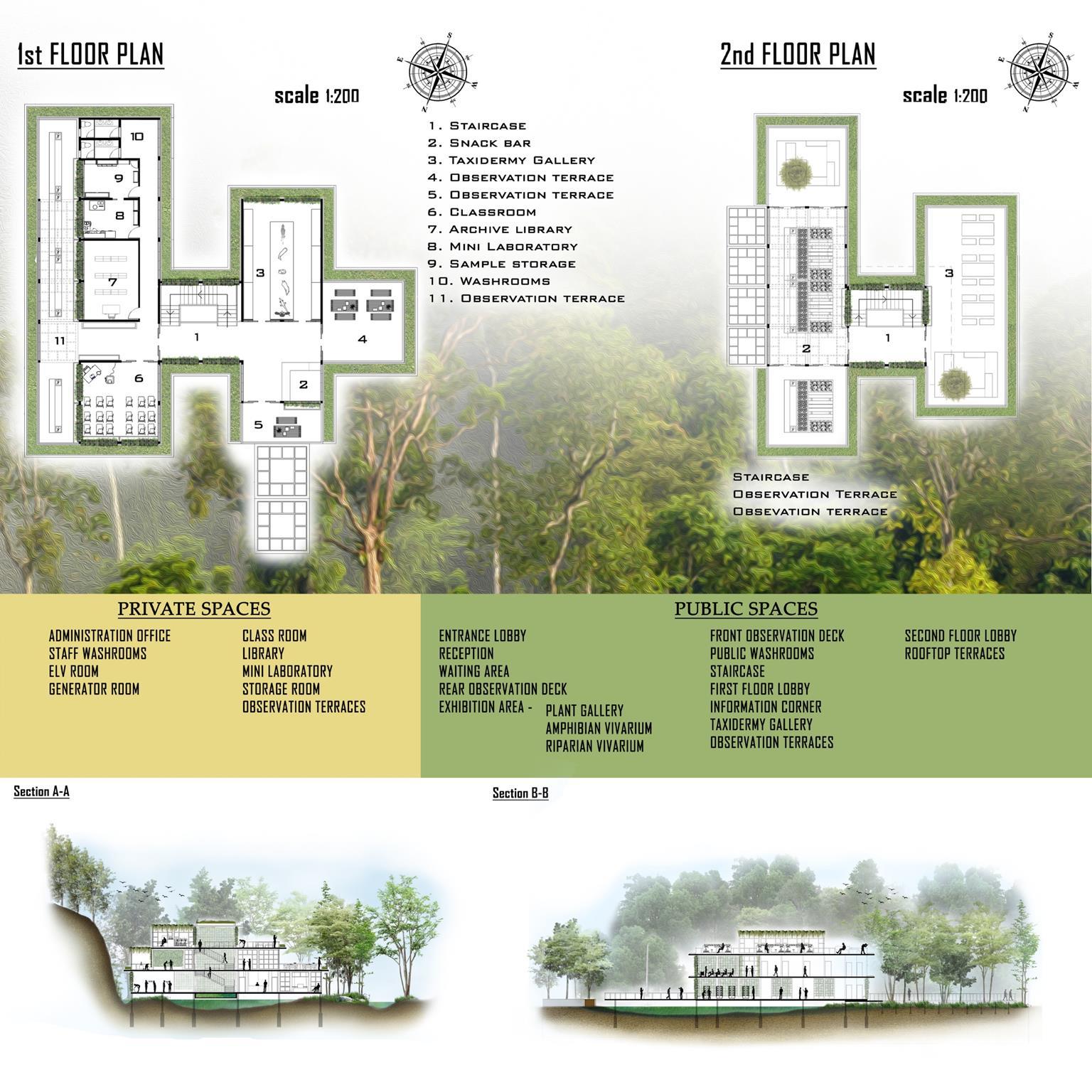
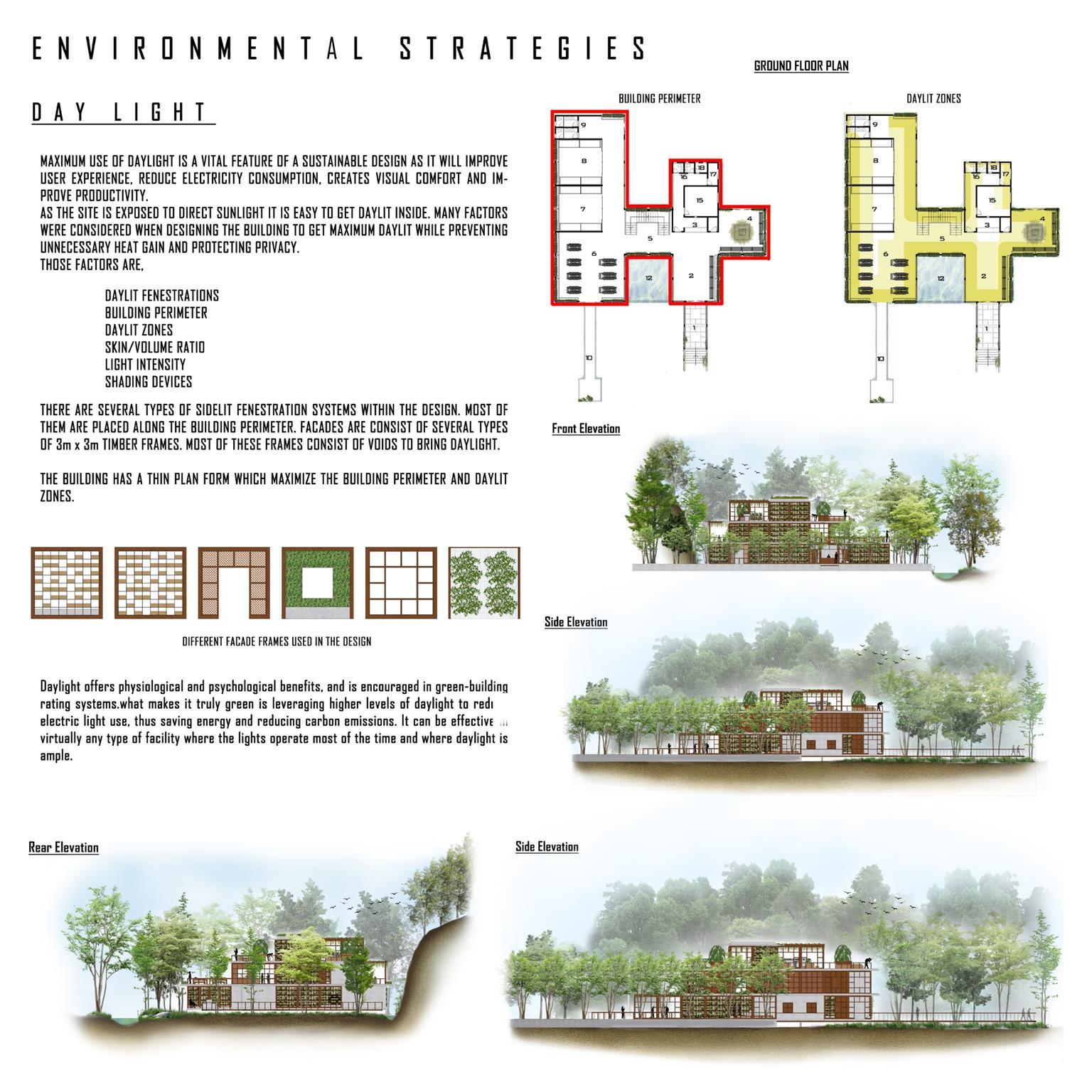
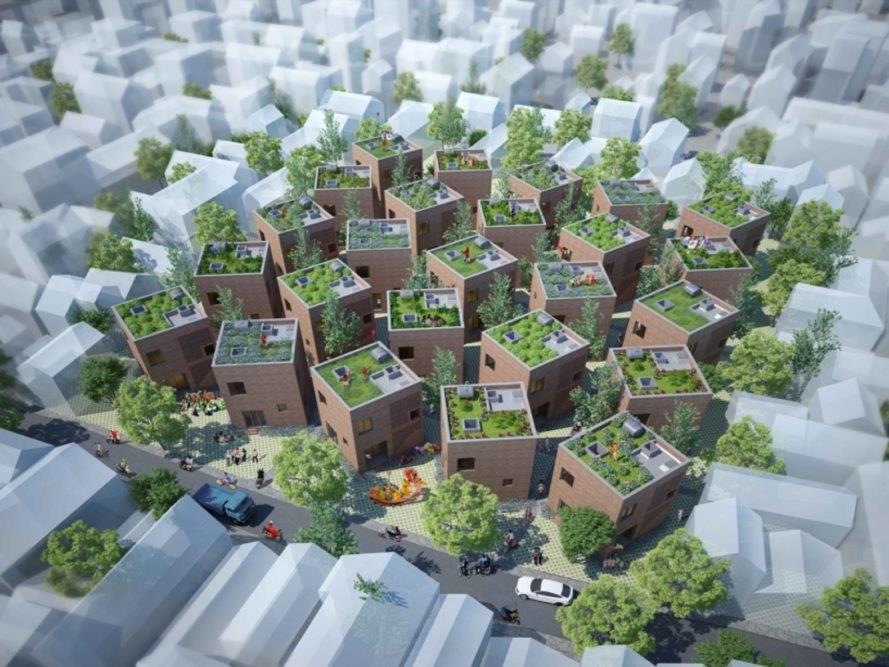
Project type Artist Studio
Site Location Kanneliya, Sri Lanka
Duration Nov 2020 Jan 2021
Software Used Microsoft Word Photoshop

Since independence, Sri Lanka has encountered a number of socioeconomic concerns. The current economic crisis is the most pressing concern. This economic catastrophe is the outcome of a series of long-term actions that were unsustainable. Due to an acute shortage of essential supplies such as food, medicine, milk powder, cooking gas, and fuel because of Sri Lanka's economic crisis, food inflation climbed to 25.7 percent on March 22, 2022, and retail inflation to 15.1 percent in February, among the highest in Asia and the highest in Sri Lanka since 2008. Sri Lanka's 22 million people are on the verge of hunger as the country's economic situation worsens and food becomes increasingly scarce.
Economic crises, unsustainable urbanization, declining food supply, and food safety concerns are all putting Sri Lanka at risk of a food catastrophe soon.In addition to meeting fundamental needs, the food system is a crucial factor of societal health and welfare, with inadequate diets being a leading cause of noncommunicable diseases and related mortality around the world. As a result, ensuring that urban populations have access to enough healthy food in the face of disruption is a critical component of resilience. Urban areas in Sri Lanka are today heavily reliant on globalized and unlocalized supply, making them subject to environmental, economic, social, and geopolitical challenges. As a result, supply delays and rising food prices can have a significant impact on city residents, especially the poor.

The reliance of Sri Lankan major cities on global resources has made them extremely vulnerable to shocks that could disrupt their current supply networks, the fragility of which has been highlighted by the recent emergence of the Covid 19 pandemic and the current economic crisis. As a result, communities must act quickly to better prepare for future crises to avoid an impending calamity.
To gain a comprehensive understanding of urban agriculture in the context of city resilience in Colombo Region, a public survey was carried out. Primary data gathered from case studies, public survey and secondary data gathered from books, magazines, websites, and academic articles.
The current state of urban agriculture in the global and Sri Lankan contexts has been examined, as well as its role in influencing societies to lead healthy lifestyles and to build communities that can withstand food crises. It has been discovered that urban agriculture entails not only demarcating space for vegetable gardens, but also developing the entire system for planting, pruning, watering, and harvesting them. Each of these components can have creative architectural solutions, making the system as a whole an extremely sustainable solution. There could be better designs that allow them to farm without having to worry about drainage or upkeep, thanks to the introduction of technologies that reuse, reduce, and recycle household waste. Architects play a critical role in helping people shape a better lifestyle so that, even if they do not comprehend it now, they can plug into it in the future by providing the necessary facilities.
In the coming future, when space becomes extremely limited in urban areas, urban agriculture could be incorporated along with apartments or even in high rise buildings, solely for agriculture. By proper implementation and designing, urban agriculture can help to shape the life of the people as well as the community for their betterment, strengthening the relationships between the urban and rural areas, and in completely eradicating food crisis.


